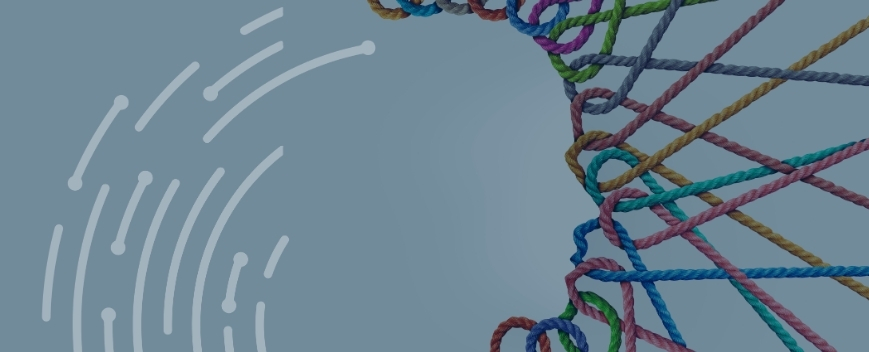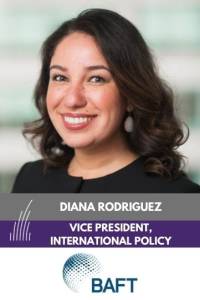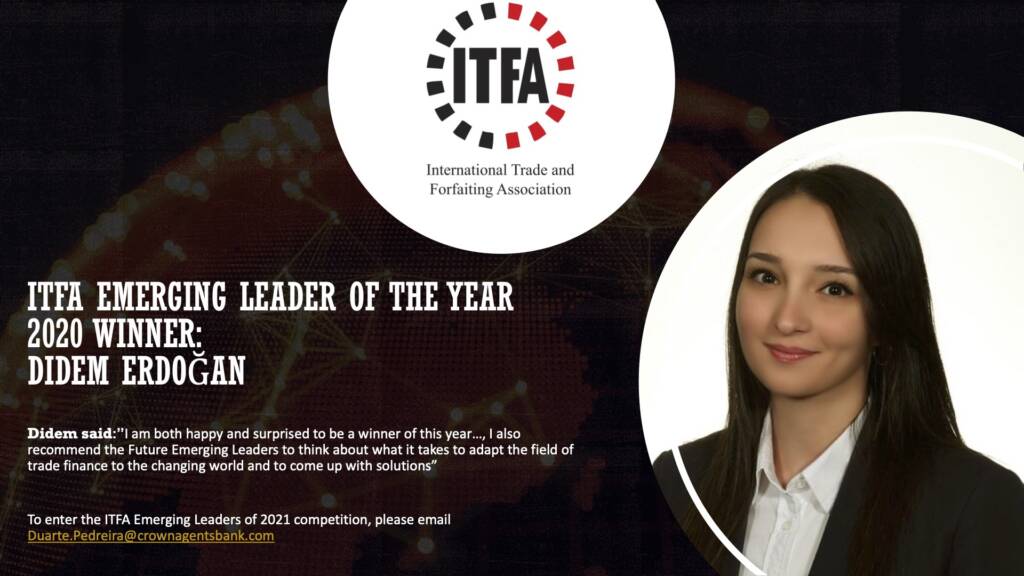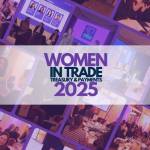Associations

Content
Women in Trade 2021 – Associations
Caroline Stockmann, Association of Corporate Treasurers

Do you find that there is a gender gap at the top in trade, and how do we attract more women into careers in trade?
There is of course a gap – the stats show it. In order to attract more women to the industry I think there needs to be a cultural shift to become more inclusive and less overtly ‘masculine’. And it’s about retention as well, as you might get women to start out in trade finance but they will leave if they find their values are not at play in the workplace.
First of all you need to have some critical mass, so I think there needs to be targets for higher numbers of women entering the industry, and you need to be prepared for them then. Mentoring schemes where the (senior) mentors are fully trained so they do a good job of it are one way of supporting women (I have experienced a very poor example of mentoring early on in my career where the guy just wasn’t interested and was not prepared to give me any time even when I turned up for a meeting, having flown from the Netherlands to Germany!)
Mentoring can have two impacts: receiving advice and learning from a more experienced person, and having someone who will support/stand up for/speak out for you.
Have you encountered any related challenges in your career along the way to becoming who you are today?
There have been challenges, as anyone would experience, but some could be put down to the fact that I was a woman working in a man’s world. When people physically exclude you from conversations for example, it can be very upsetting. I remember this happening in my corporate days, for example, in a new role with responsibility across Europe, and meeting with all my financial directors (and being the only woman in the room). In a coffee break, trying to join a group to chat, they literally closed ranks on me and I was left on the outside. But my learning was that it’s not necessarily intentional, and in fact through discussion and exploration I realised that the men who were ‘excluding’ me were not even aware they were. So that’s the start-point, which is around understanding, tolerance (for a time) and education – rather than anger or withdrawal, for example.
Caroline speaks to TFG in the podcast: Building resilience in treasury: leadership, supply chains and cash flow
Diana Rodriguez, BAFT

What things do you like most about your job?
I oversee a diverse portfolio of issues for BAFT, ranging from the cessation of LIBOR, implementation of the Basel Framework, to bilateral and regional trade policy matters impacting financial services. The issues vary greatly and that, in and of itself, is one of the elements that I enjoy most about my role.
I regularly track policy developments across multiple jurisdictions, build consensus among our members, and advocate on behalf of our members before relevant policy making bodies. Advocacy may involve responding to a public consultation, hosting a private meeting, publishing a white paper, launching a multi-stakeholder coalition, or all of the above.
Engagement with the official sector takes many forms depending on the local jurisdiction, but it always requires effectively conveying our priority issue in a manner that resonates with the priorities of the policymaker. Policy change is often slow, so it is important to remain committed and to be creative when pushing for policy changes that will yield a tangible impact for the industry.
On International Women’s Day, what is the most important message you want to send out to young women thinking about their careers?
Your career trajectory will not always be linear and it will likely deviate from what you imaged when you were just starting out. The most rewarding roles I have had were ones that involved a departure from my prior experience and that required that I move out of my comfort zone to transition to a new industry and sector.
During such transitions, immerse yourself in the subject matter, learn from your peers and seek to understand the issues you are working on from multiple perspectives. The diversity of experience that you bring to your role is an asset. Share your unique perspective and remember to never wait for a job title to make you a leader. There are opportunities for leadership at all phases of your career. Take ownership of what you want out of your life and strive to create a career that fits into that vision.
Samantha Pelosi, BAFT

Why did you choose a career in this sector?
Ever since I joined a Model United Nations club in high school, I have been interested in international law and policy as it applies to trade and finance. I find the multi-party, multi-disciplinary, and cross-cultural nature of the business particularly attractive. The problem-solving process is an invigorating challenge that allows me to learn about and appreciate all the diversity that the world has to offer.
What specific tasks and responsibilities does your job require?
My position at BAFT encompasses four strategic pillars: policy advocacy, thought leadership and best practices, membership education and training, and global community building. I enjoy each of these roles, but for different reasons.
With respect to advocacy, I like to identify the common ground and between our members and policymakers so that both sides can focus on developing a solution. Writing whitepapers provides a creative outlet and defining industry best practices provides an opportunity to work collaboratively with recognized experts to produce guidance that benefits the entire ecosystem. Finally, staff travels the world to deliver training to and connect with members. I explore the culture and history of each country that I visit, often learning more than I teach. In short, my work progresses an important mission – enabling all persons and nations to participate in the global economy.
Listen to Samantha speak in our recent Tradecast with BAFT: Trade Finance Transactions Go Live – BAFT’s Digital Ledger Payment Commitment (DLPC)
Diana Smallridge, International Financial Consulting

Have you encountered any related challenges in your career along the way to becoming who you are today?
Without a doubt! I still experience challenges to this day, and I try to consider each one as a gift. Facing challenges head-on – external or internal – has really required me to consider what it takes to move ahead, either past them or around them. I feel that these challenges have contributed invaluably to my resilience and drive. At the end of the day, they’ve strengthened me.
Do you find that there is a gender gap at the top in trade?
Yes, for sure there is. I chair the ExCred conference every year, which brings together industry leaders in export credit and political risk. As I used to sit on the podium looking out, I couldn’t help but to take note of the lack of women in the room. Of course, over the 20 years that I’ve chaired, there has been significant change in the ranks and thankfully more women are now at the table. However, there is still very much a gender gap to work on. (That said, don’t call me the chair. Don’t call me the chairwoman. Call me the chairman. I am human not “huwoman”).
We interviewed Diana Smallridge on the role of ECAs, development banks and DFIs when it comes to financing cross-border trade
Johanna Wissing, ITFA

Why did you choose a career in this sector?
I started my banking career on the corporate banking graduate programme at Barclays and my very first placement was in the correspondent banking team where I supported the Asia desk that was based in Singapore from London. Given the team was active all across Asia there was a steady flow of trade transactions which at the time was a business Barclays had just set out to build. I got intrigued by the nature of these deals, and wanted to learn more, and so applied to join trade for my second placement.
I have never regretted it: since then I have worked in various trade origination and trade syndication roles across all sorts of client sectors and segments within banks as well as fintech and I even managed to move out to Singapore 1.5 years ago which is at the very heart of a lot of trade finance activity.
To me, while there is more to banking than just trade finance (and one day it will be time to explore other areas again), trade finance is such a quintessential corporate banking product, and will only ever become more important in today’s world economy. It is a very exciting field to work in and offers so many different career opportunities.
Do you find that there is a gender gap at the top in trade?
Yes and no. There certainly is a gender gap at the top in trade if simply looking at how many commercial banks have got a female head of trade or how many commodity house have got women in senior structuring positions, or how many women run large trade credit insurance businesses etc.. That being said this current imbalance is not just true for trade, but is a matter of fact across the financial services and other industries, and it is something we see shift ever more to a more balanced outlook.
There is a rising number of women in senior positions in trade, and I am therefore optimistic that we will see many more women at the top in trade over the coming years, and in fact not just at the top in trade, but across all industries.
On International Women’s Day, what are the most important messages you want to send out to young women thinking about their careers?
1. Be yourself and enjoy what you do or change! Enjoying what one does is really the most important ingredient for a successful career, hard work and talent are important, but it would require incredible self-discipline to spend up to 30-40 years doing something one doesn’t enjoy, and what kind of life would that be….? We all have the occasional bad day at work, or even bad week, but as long as one still feels that the good days outweigh the bad that will make for more joy than pain at work and that is very important.
2. People, people, people – Engage with the people around you, and learn from them, respectively help them learn from you. There are so many amazing people from so many different cultural, ethical, religious, gender, etc. background in the financial services industry, and being part of the industry is such a great opportunity to learn from all their different experiences. Seek mentors when you feel you need them, and be a mentor to others. Never burn bridges: it’s inappropriate, impolite and will only come back to bite you.
3. Be curious and never stop learning!
Jo took part in a recent TFG tradecast, with a bank perspective on pandemic induced supply chain disruption and the provision of working capital
Didem Bayseferoğulları, ITFA Emerging Leaders

Why did you choose a career in this sector?
To be honest, while I was studying economics at university, the trade finance sector was not the first field I targeted to work after school. But having done my internship within an export-import company, I recognised that trade is not only about trading goods and services but also exchanging views and meeting with the rest of the world. Even though I started my professional life at Turkish Statistical Institute, as an economics graduate and very interested in different cultures, the philosophy of international trade continued to interest me. Afterwards, I started to work in International Loans department at Turk Eximbank, which is the only official export credit agency in Turkey, and by this way I could combine trade and my background in the field of economics.
On International Women’s Day, what is the most important message you want to send out to young women thinking about their careers?
Whether its related to trade finance or not, I would recommend to all young women to think out of the box in their work. But in order to do that they need to understand the dynamics and the challenges of any sector deeply in the first place. Moreover, I would suggest expanding their networks and if possible, they can join a women’s association. Because by this way, they can get help easily and also joining a larger network where they can get support in all matters, they can feel that they are not alone on this path.
For example, when preparing my research about software export finance and deficiencies in this area, which brought me the prize of ITFA Emerging Leader of 2020, I was supported by The Women Entrepreneurs Association of Turkey (KAGIDER) which is a non-governmental organisation aimed at strengthening women entrepreneurs. Last but not least, in my opinion young women should be more willing, open and courageous to talk about their own achievements. Because no matter how successful we are, we must first ourselves appreciate and embrace our achievements.
Interview: Didem was ITFA’s Emerging Leader of the Year (2020). Read our exclusive interview here:

Aysen Cetintas, FCI

Why did you choose a career in this sector?
After graduating from the University, I started my career in 1990 working in the trade finance department of a multinational bank in Turkey. In fact, I chose to have a bank career, but I came to the trade finance industry by accident and since then it is a passion of mine. I always believe that a career in the finance industry would be the most beneficial use of my knowledge and skills in relationship management and problem-solving. A trade finance role falls somewhere between a coverage-relationship management role and a very specialised product role. Therefore, you need to showcase aspects of client engagement as well as product knowledge. After 30 years of my career in trade finance, I am still enjoying what I do every day and I invite new graduates to join the club!
On International Women’s Day, what is the most important message you want to send out to young women thinking about their careers?
Despite the best efforts of industry bodies to attract the next generation of trade finance professionals, more work needs to be done to increase the proportion and visibility of young talent in the business.
The lack of awareness in this sector within the university sphere resulted in graduates not considering trade finance as a career option. Today’s world of trade finance has evolved greatly and offers tremendous career opportunities for graduates. New technology is completely changing the way trade is conducted today. The customers using these solutions are ranging from the smallest enterprises to the largest institutions. The solutions vary from bilateral facilities provided to customers, to syndicated trade facilities and collateralised debt obligations.
Trade Finance is generally big enough in its own to offer good career growth prospects. It is entirely possible to move in and out of various corporate banking roles, but if you really are a specialist in your field, you would be better served by sticking to what you know.
So, who is this career really for? I would say it is for those young women graduates who are looking for a global career, willing to work hard, having interest in visiting different countries and meeting customers and colleagues, who are motivated to learn and provide trade finance solutions to corporates and small & medium sized enterprises. In developing and emerging countries women entrepreneurship plays a key role in creating jobs and driving economic growth. I do invite young women to pursue their career in trade finance to help women entrepreneurs succeed and be more engaged in business.
TFG recently announced a partnership with FCI Academy, led by Aysen. Read the interview and find out more here:

Lisa McAuley, Global Trade & Professionals Alliance

Why did you choose a career in this sector?
I studied Economics (Social Sciences) as my undergraduate degree but after I finished University, I was more interested in working in the creative industry. However, I shortly found my way into global trade working at an organisation supporting SME’s to grow their business globally. As soon as I started in this role, I knew this was where I wanted to be. However, I have to admit it was not something that was promoted as a career option when I was in school or even at University.
Have you encountered any related challenges in your career along the way to becoming who you are today?
I have experienced some challenges. Often being one of the few women at the boardroom table or in meetings. However, I do not think that has held me back as I have learnt how to use this to my advantage.
I have had setbacks in terms of external forces trying to hold me back and that did lead to a challenging couple of years until I put my foot down.
Probably my most exciting move was a couple of years ago when I moved to establish my own business. It was scary and I was not 100% percent sure I had made the right decision. You have to make personal and financial sacrifices, so your typical safety net is out of the window. However, I always wanted to have the opportunity to set up by own business. I especially wanted to drive something at a global level that would impact other women businesses owners as well as to address ongoing challenges impacting SMEs in both developed and developing markets to engage in a more inclusive trading economy.
I am now very lucky to have a great board who support and work together on this collective mission.
Sponsors & Partners
Learn MoreMore about Women in Trade
- WITTP Over The Years
- Topics
- Podcasts
- Videos



























